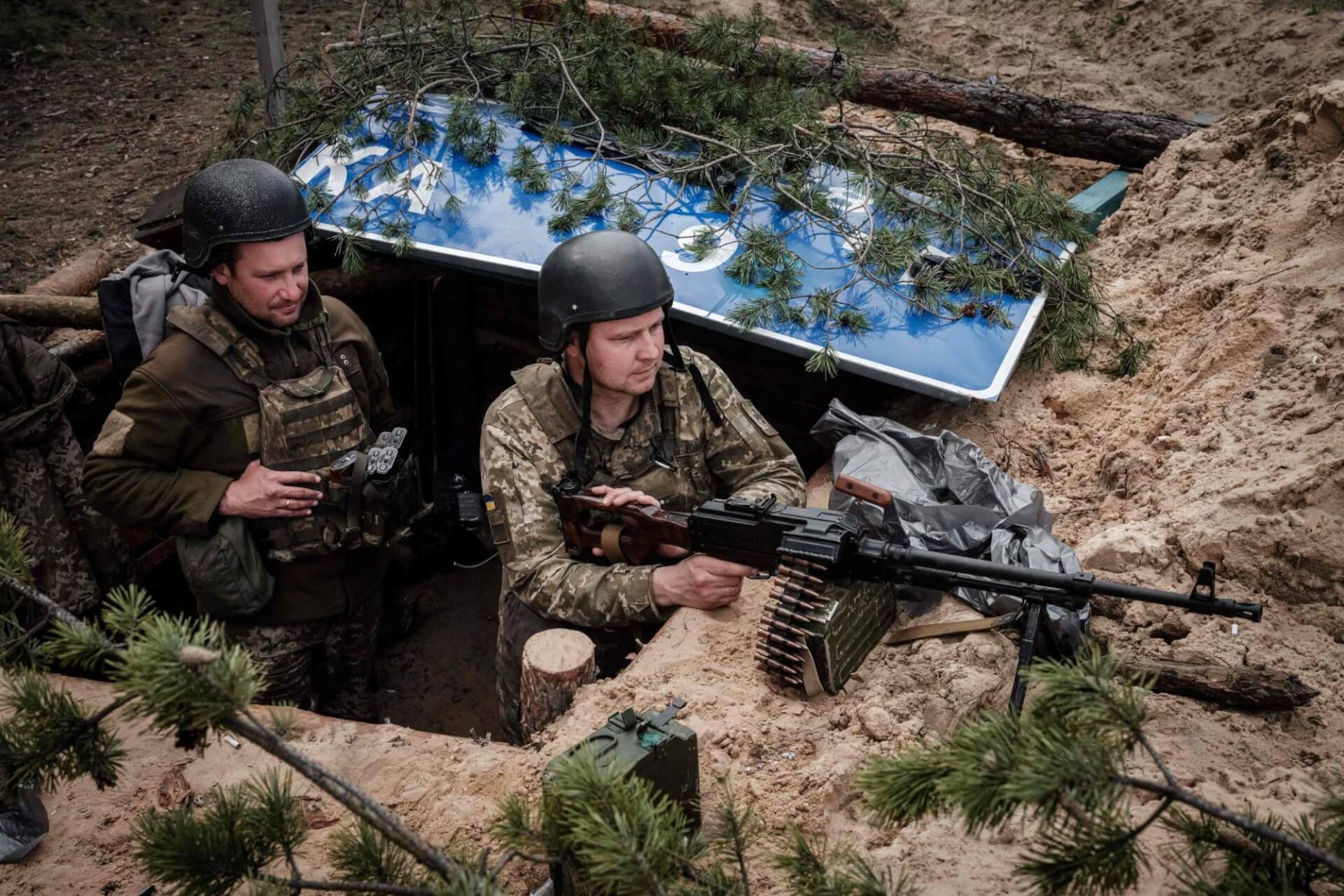According to a report by Haaretz, Israeli politicians and security officials are weighing up the possibility of delivering military equipment to Ukraine following antisemitic comments made by Russian Foreign Minister Sergey Lavrov. In a meeting held on Tuesday, officials appeared to be increasingly inclined to increase military and civilian aid to the war-ravaged country.
Officials told Haaretz that there is a lot of defence equipment that Israel could provide Ukraine, ranging from helmets to even the Iron Dome air defence system. An additional discussion will be held in the coming days to finalise whether or not to go ahead with the move.
The Israeli news site reported that officials remain wary of sending advanced weapons and air defence systems, as this could lead to a wider crisis with Russia and affect Israeli operations against Iranian targets in Syria. However, there was a broad consensus on sending military equipment like combat gear and early warning systems that will protect Ukrainian troops on the ground.
On March 20, Zelensky urged Israel to supply weapons and missile defence aid to Ukraine
— Samuel Ramani (@SamRamani2) May 2, 2022
Ukraine will likely repeat these calls, as relations between Israel and Russia sour
Keeping this in mind, Haaretz said the support would be more “declarative” in nature and not include considerable supplies of equipment because the United States and its Western allies are already supplying Ukraine with sophisticated defence material beyond Israel’s capabilities.
The report follows inflammatory comments made by Lavrov on Sunday on the Italian channel Rete 4, wherein he claimed that Adolf Hitler, who murdered over six million Jews during World War II, had Jewish heritage. When questioned about Russia’s intent to “denazify Ukraine” despite President Volodymyr Zelensky being Jewish, Lavrov told the Rete 4 channel: “When they say ‘What sort of nazification is this if we are Jews,’ well, I think that Hitler also had Jewish origins, so it means nothing.”
Israel has provided Ukraine with medical and humanitarian aid but refused to provide weapons. Russia, though, has no doubts about which side Israel is on, and has clearly and ominously expressed its displeasure @chuck_freilich Opinionhttps://t.co/9sgAU1HmUR
— Haaretz.com (@haaretzcom) May 3, 2022
“For a long time now, we’ve been hearing the wise Jewish people say that the biggest anti-Semites are the Jews themselves,” he added.
Following Lavrov’s comments, Israel slammed Russia for spreading “an unforgivable falsehood that debased the horrors of the Nazi Holocaust” and summoned Russia’s ambassador. In a statement, Israeli Prime Minister (PM) Naftali Bennett said, “I view with utmost severity the Russian Foreign Minister’s statement,” denouncing Lavrov’s remarks as “untrue” and his intentions as “wrong.”
“The goal of such lies is to accuse the Jews themselves of the most awful crimes in history, which were perpetrated against them, and thereby absolve Israel’s enemies of responsibility,” he further remarked. Bennett stated that no contemporary war can be compared to Holocaust, adding, “The use of the Holocaust of the Jewish people as a political tool must cease immediately.”
After the Kremlin claimed that Israel (!) supports Nazism, I have just one question. Is there any non-Nazi country in the whole world in Russia’s point of view? Except Syria, Belarus and Eritrea, of course.
— Михайло Подоляк (@Podolyak_M) May 3, 2022
In response, the Russian foreign ministry said today that Lapid’s comments were “anti-historical” and “explain to a large extent why the current Israeli government supports the neo-Nazi regime in Kyiv.”
Israel has so far been wary of directly condemning Russia over the Ukraine war and enforcing sanctions on Russian oligarchs. While it has stated that it respects Ukraine’s sovereignty and even voted for a United Nations General Assembly (UNGA) resolution calling on Russia to end the war, it has for the most part refrained from outright condemning Russia.
It did somewhat depart from this position at the start of April, when, referring to the Bucha massacre, FM Lapid blamed “Russian forces [for committing] war crimes against a defenceless civilian population.”
The Israeli reaction to the dreadful declaration of Lavrov about Hitler was not as enduring in its vehemence as one would normally expect. In an unprecedented manner, it has been repeatedly said that Russia and Israel had common interests in Syria that should not be put at risk.
— Tarek Mitri (@TarekMitri) May 4, 2022
Nevertheless, Israel has refused to sell its Iron Dome missile to Ukraine despite repeated requests from Kyiv. This is due to its power-sharing arrangement with Russia in Syria. Since Syria’s 2011 civil war, Israel has been conducting airstrikes against Iranian proxies.
Following Russia’s intervention in 2015 to support Syrian President Bashar al-Assad’s regime, Israel was forced to coordinate its airstrikes against enemy targets with Russia to prevent their forces from coming into conflict with each other.
Like Israel, Russia, too, has indicated a shift in its position on the power-sharing agreement. Russian Foreign Ministry spokeswoman Maria Zakharova last week slammed Israeli airstrikes in Syria, calling them a “violation of the basic rights of international law” and “categorically unacceptable and inadmissible.” She further demanded that Israel ends “this vicious and dangerous practice.”

